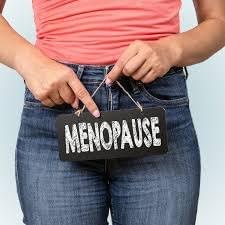A Comprehensive Guide to Early Menopause: Causes, Symptoms, and More

Demystifying Early Menopause
Early menopause, a condition affecting a significant number of women, often remains a subject of intrigue and concern.
In this comprehensive guide, we will delve deeply into the intricate world of early menopause, offering a detailed understanding of its causes, symptoms, the profound implications it carries for women’s health, and answering some frequently asked questions.
We will also explore less common signs of early menopause that are equally important to recognize.
The Complexities of Early Menopause
Early menopause, also known as premature menopause, occurs when a woman’s menstrual periods cease before she reaches the age of 40. Typically, this natural biological transition takes place in a woman’s late 40s or early 50s, marking the culmination of her reproductive years.
However, for some women, this transformative journey commences far earlier, introducing a unique set of challenges.
Understanding the Multifaceted Causes
The causes of early menopause are multifaceted and encompass various factors, including:
- Genetic Predisposition: Genetics plays a significant role in determining whether a woman is susceptible to early menopause. If a woman’s mother or sister experienced early menopause, her risk is notably heightened. Specific genes may influence the timing of menopause.
- Autoimmune Disorders: Certain autoimmune diseases, such as lupus or rheumatoid arthritis, can trigger early menopause. In these conditions, the body’s immune system mistakenly attacks the ovaries, disrupting their normal function.
- Infections as Culprits: Some infections, like mumps, have the potential to bring about early menopause. Mumps can lead to inflammation of the ovaries, causing damage and irregularities in their functioning.
- The Impact of Turner Syndrome: Turner syndrome is a rare genetic disorder affecting only females, occurring in approximately 1 in 2,500 live female births. It is characterized by the partial or complete absence of one of the X chromosomes. Women with Turner syndrome often experience underdeveloped ovaries, resulting in early menopause. This condition emphasizes the importance of early diagnosis and specialized medical care for affected individuals.
Recognizing the Multifaceted Symptoms
Early menopause often manifests through a spectrum of symptoms, which can include:
- Irregular Periods: Among the earliest signs, women may experience erratic menstrual cycles or missed periods.
- Hot Flashes: These sudden and intense waves of heat can be accompanied by sweating and palpitations, disrupting daily life.
- Mood Swings and Emotional Turbulence: Hormonal fluctuations during early menopause may lead to mood swings, irritability, and emotional turbulence.
- Vaginal Dryness and Discomfort: Reduced estrogen levels can result in vaginal dryness and discomfort during sexual intercourse, affecting a woman’s quality of life.
Less Common Signs of Early Menopause
In addition to the more prevalent symptoms mentioned above, early menopause can also manifest in less common ways. These include:
- Tiredness: An unexplained and persistent feeling of tiredness or fatigue can be a subtle sign of early menopause.
- Water Retention: Some women may experience water retention, leading to bloating and discomfort.
- Loss of Interest in Hobbies: A decreased interest in activities or hobbies that were once enjoyable may occur.
- Aching Joints: Joint pain and stiffness can be an unexpected symptom of early menopause.
- Depression: Changes in hormonal balance can contribute to feelings of depression or low mood.
- Burning Tongue: A sensation of burning or tingling on the tongue can be a lesser-known sign.
- Dizziness: Occasional dizziness or lightheadedness may also be associated with early menopause.
- Bloating: Some women may experience abdominal bloating, which can be uncomfortable.
- Brittle Nails: Changes in hormone levels can lead to brittle and easily damaged nails.
- Hair Loss: Thinning hair or hair loss can occur as a result of hormonal fluctuations during early menopause.
Coping with Early Menopause
Navigating the complexities of early menopause can be a formidable journey, encompassing physical and emotional challenges.
Seeking guidance from healthcare professionals, as well as finding emotional support from friends and family, can significantly ease this transition. Hormone replacement therapy (HRT) is a medical option that may be considered to alleviate symptoms and enhance overall well-being.
Frequently Asked Questions (FAQs)
Q1: Can early menopause be prevented?
A1: Early menopause can’t always be prevented, especially if it’s due to genetic factors or certain medical conditions. However, adopting a healthy lifestyle, including not smoking and managing underlying health issues, may delay its onset in some cases.
Q2: Are there any natural remedies for managing early menopause symptoms?
A2: Some women find relief from symptoms through lifestyle changes like a balanced diet, regular exercise, and stress reduction techniques. However, for severe symptoms, medical intervention, such as hormone replacement therapy (HRT), may be necessary.
Q3: Can women with early menopause still have children?
A3: Once early menopause begins, natural conception becomes highly unlikely. However, options like egg freezing or adoption are available for those who wish to expand their families.
In Conclusion
In summary, early menopause represents a transformative phase in a woman’s life that demands understanding and support. By comprehending its multifaceted causes, recognizing its diverse symptoms, and acknowledging the profound impact it can have on fertility, women can approach this journey with grace and confidence.
If you suspect you may be experiencing early menopause, it is imperative to consult a healthcare provider for tailored guidance and care.
Knowledge is empowering, and being informed about early menopause empowers women to embrace this stage of life with resilience and determination, fostering a brighter and healthier future.